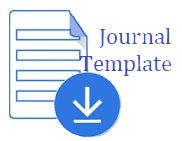Paradikma Jurnal Pendidikan Matematika (PJPM) is a scientific publication that contains the results of research in the field of education including Design Research in Mathematics Education, and Mathematics Ability, Realistic Mathematics Education (RME), PISA Task, Mathematics Teacher Education and Development, Development of Information and Communication Technology in Mathematics Education that has never been published. This scientific code of ethics statement is the statement of the code of ethics of all parties involved in the publication process of this scientific journal, namely managers, editors, bestari partners, and authors/writers. The statement of ethics code for scientific publications is based on the Regulation of the Head of LIPI Number 5 of 2014 concerning the Code of Ethics for Scientific Publications, which in essence, the Code of Ethics for Scientific Publications essentially upholds three ethical values in publications, namely
- Neutrality, which is free from conflicts of interest in the management of publications;
- Justice, namely giving authorship rights to those who are entitled as authors/authors; and
- Honesty, which is free from duplication, fabrication, falsification, and plagiarism (DF2P) in publications.
- Determine the name of the journal, scientific scope, scale, and accreditation if needed.
- Determine editorial board membership.
- Defines the relationship between publishers, editors, peer partners, and other parties in a contract.
- Respect confidential matters, both for contributing researchers, authors/writers, editors, and bestari partners.
- Applying norms and provisions regarding intellectual property rights, especially rights create.
- Review journal policies and submit them to authors/authors, the editorial board, peer review partners, and readers.
- Generate behavioral code guides for editors and peer-reviewed partners.
- Publish a journal regularly.
- Ensuring the availability of sources of funds for the sustainability of journal publishing.
- Build cooperation and marketing networks.
- Prepare licensing and other legal aspects.
- Meeting the needs of readers and authors/writers.
- Strive to improve the quality of publications in a sustainable manner.
- Implementing processes to ensure the quality of published papers.
- Prioritizing freedom of opinion objectively.
- Maintain the integrity of the author's academic track record.
- Deliver corrections, clarifications, withdrawals, and apologies if needed.
- Responsible for the style and format of the written word, while the content and all statements in the written work are the responsibility of the author/writer.
- Actively soliciting the opinions of authors, readers, bestari partners, and members of the editorial board to improve the quality of publications.
- Encourage an assessment of the journal if there are findings.
- Support initiatives to reduce research and publication errors by asking authors to attach an Ethics Clearance form that has been approved by the Ethics Clearing Commission.
- Support initiatives to educate researchers about publication ethics.
- Assessing the effect of published policies on the attitudes of authors/authors and peer-reviewed partners and correcting them to increase responsibility and minimize errors.
- Have thoughts open to new opinions or views of others that may conflict with personal opinions.
- Not maintaining your own opinion, author, or the third party which may result in non-objective decisions.
- Encourage authors/writers, so that they can improve their written work so that it is fit for publication.
- Received an assignment from the editor to review the paper and submit the review results to the editor as material for determining the feasibility of a written work for publication.
- A reviewer must not conduct a review of written works that involve him, either directly or indirectly.
- Maintain the privacy of authors by not disseminating corrections, suggestions, and recommendations by providing criticism, suggestions, input, and recommendations
- Encourage authors/writers to make improvements to writing
- It is reviewing papers that have been corrected according to predetermined standards.
- Written papers are reviewed in a timely manner according to the published environment based on scientific principles (data collection methods, author legality, conclusions, etc.).
- Ensuring that those included in the list of authors/authors meet the criteria as an author/writer.
- Collectively responsible for the work and content of the article includes methods, analysis, calculations, and details.
- Declare source of resources (including funding), either directly or indirectly.
- Explain the limitations of the research.
- Respond to comments made by bestari partners in a professional and timely manner.
- Inform the editor if it will be interesting back in his writing.
- Make a statement that the work submitted for publication is original, has not been published anywhere in any language, and is not in the process of being submitted to another publisher.





10.png)


